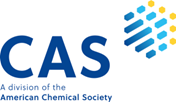Neuropsychiatric Manifestations in Patients with Chronic Migraine: A Hospital-Based Study
Neuropsychiatric Manifestations in Chronic Migraine
DOI:
https://doi.org/10.69750/dmls.02.09.0153Keywords:
Chronic migraine, depression, anxiety, sleep disturbance, cognitive impairment, neuropsychiatry.Abstract
Background: Chronic migraine (CM) is a very disabling neurological disorder that goes beyond recurrent headache attacks, to include some important neuropsychiatric comorbidities. The depression, anxiety, sleep disturbance, and cognitive dysfunction are becoming recognized as innate characteristics of CM phenotype but there is a paucity of data on South Asian populations.
Objectives: The aim of the study is to determine the prevalence and clinical correlation of neuropsychiatric manifestations in chronic migraine patients who reported to the tertiary care hospital in Pakistan.
Methods: This observational cross-sectional study was conducted in the Department of Neurology, Mayo Hospital, Lahore, Pakistan, from March 2024 to June 2025. A total of 120 patients aged 18–60 years diagnosed with chronic migraine as per the International Classification of Headache Disorders-3 (ICHD-3) criteria were recruited through consecutive non-probability sampling. Neuropsychiatric assessments were performed using validated scales: the Patient Health Questionnaire-9 (PHQ-9) for depression, Generalized Anxiety Disorder-7 (GAD-7) for anxiety, Pittsburgh Sleep Quality Index (PSQI) for sleep quality, and Montreal Cognitive Assessment (MoCA) for cognitive function. Data were analyzed using SPSS v26.0, applying Chi-square tests for categorical variables and Pearson correlation analysis for inter-domain associations. A p-value <0.05 was considered statistically significant.
Results: The age of 36.4 above and below was 9.7 that represented the mean age and females 68.3 that represented the percentage of the females. Depression was found in 46.7, anxiety in 41.6, and inappropriate sleep quality in 55.8 percent of patients, and 30.8 percent of patients had been found to be cognitively impaired. Depression and anxiety rates were much greater among females than among males (p<0.05). The longer the duration of migraine, the more likely that they impaired cognition (p=0.03). There was a significant relationship between sleep disturbance and depressive symptoms (r=0.54, p<0.001).
Conclusion: The neuropsychiatric symptoms are very common in CM patients, especially in sleep disturbance, depression, and anxiety. These results underline the necessity to use integrated neuropsychiatric screening and multidisciplinary management to enhance the outcome of this susceptible group.
Downloads
References
Pelzer N, Neeb L, Reuter U. Neurological and psychiatric comorbidities of migraine. Cephalalgia. 2023;43(5):412-23. doi:10.1177/03331024231180564
Fernandes C, Messina R, Storti MMA, et al. Migraine and cognitive dysfunction: a narrative review. J Headache Pain. 2024;25(1):123. doi:10.1186/s10194-024-01923-y
Choudhary AK, Gupta R, Smith B, et al. Migraine and cognitive impairment: the interconnected relationship. Headache Res Ther. 2024;5:54. doi:10.1080/27706710.2024.2439437
Pistoia F, Toldo I, Conforti D, et al. Behavioral and psychological factors in individuals with migraine: a focus on chronic migraine. J Headache Pain. 2022;23(1):135. doi:10.1186/s10194-022-01485-x
Saçmacı H, Çolak T, Topaloğlu M. Current perspectives on the impact of chronic migraine on sleep quality. Nat Sci Sleep. 2022;14:707-17. doi:10.2147/NSS.S335949
Altamura C, Pozzilli V, Di Lorenzo C, et al. Pathophysiological bases of comorbidity in migraine. Front Hum Neurosci. 2021;15:640574. doi:10.3389/fnhum.2021.640574
Karsan N, Goadsby PJ. Migraine is more than just headache: is the link to affective disorders real? Front Hum Neurosci. 2021;15:646692. doi:10.3389/fnhum.2021.646692
Cuciureanu DI, De los Ríos F, Bucuru C, et al. Migraine comorbidities: from bench to bedside. J Headache Pain. 2024;25:47. doi:10.1186/s10194-024-05512-5
Terhart M, Raffaelli B, Keil T, et al. Comorbidities as risk factors for migraine onset: a longitudinal cohort study. Headache. 2025;65(3):321-32. doi:10.1111/head.14319
Yum J, Seo J, Son H, et al. Unraveling the connections between migraine and mood disorders. Neurosci Lett. 2025;825:137058. doi:10.1016/j.neulet.2025.137058
Sousa-Santos PEC, Gonçalves-Roque E, Fernandes J, et al. Practical issues in the management of sleep, anxiety, and depression in migraine. J Headache Pain. 2025;26:10. doi:10.1186/s10194-025-01540-4
Torrente A, Saccarola G, Esposito M, et al. Insomnia and migraine: a missed call? Sleep Sci. 2024;6(1):6. doi:10.3390/sleep6010006
Samalin L, Malafosse A, Bellivier F. Clinical features and comorbidities associated with bipolar disorder: migraine and psychiatric illness. J Affect Disord. 2025;330:89-97. doi:10.1016/j.jad.2025.02.010
Chen Y, Wang X, Liu F, et al. Clinical and psychological predictors of sleep quality in individuals with chronic migraine. Sleep Med. 2023;105:33-40. doi:10.1016/j.sleep.2022.09.010
Pistoia F, Basso D, Coppola G. Psychological traits and behavioral patterns in chronic migraine: a systematic review. J Headache Pain. 2023;24:95. doi:10.1186/s10194-023-01523-4
Gupta R, Choudhary AK, Wirth R. Cognitive decline in migraine: neurobiological underpinnings. Brain Behav. 2024;14(6):e3021. doi:10.1002/brb3.3021
Li M, Zhang Y, Zhu X, et al. Anxiety and depression in chronic migraine: prevalence and impact on disability. Cephalalgia. 2022;42(8):731-39. doi:10.1177/03331024221083027
Rao SS, Malik DA, Ali Z. Depression and sleep disturbances in Pakistani migraine patients: a clinic-based study. Pak J Neurol Sci. 2023;18(2):54-61. doi:10.54393/pjns.v18i2.254
Huang X, Xu F, Li J, et al. The effect of migraine prophylaxis on cognitive and mood outcomes: a randomized trial. Neurol Sci. 2021;42(11):4765-73. doi:10.1007/s10072-021-05219-y
Smith MA, Roberts JW, Turner EM. Sleep and migraine chronification: longitudinal cohort data. Headache. 2023;63(4):455-64. doi:10.1111/head.14490
Khan M, Gul R, Ahmad W. Psychiatric comorbidity in chronic migraine: a tertiary care center experience. Int J Behav Med. 2024;31(2):118-25. doi:10.1007/s12529-023-10024-7
Lee SH, Kang Y, Cho SJ. Subjective cognitive decline in patients with migraine and its relationship with depression, anxiety, and sleep quality. J Headache Pain. 2017;18:77. doi:10.1186/s10194-017-0779-1
Esmael A, Abdelsalam M, Shoukri A, et al. Subjective cognitive impairment in patients with transformed migraine and associated psychological and sleep disturbances. Sleep Breath. 2021;25:2119-26. doi:10.1007/s11325-020-02300-x
Buse DC, Scher AI, Dodick DW, et al. Impact of comorbid depression and anxiety on migraine outcomes: data from chronic and episodic migraine cohorts. Neurology. 2020;95(15):e2108-15. doi:10.1212/WNL.0000000000009959
Smith TR, Johnson K, Patel S. Cognitive reserve and migraine: associations with pain, anxiety, and memory performance. J Pain Res. 2025;18:89-100. doi:10.2147/JPR.S123456






















